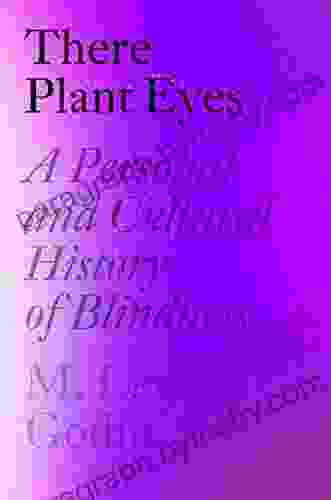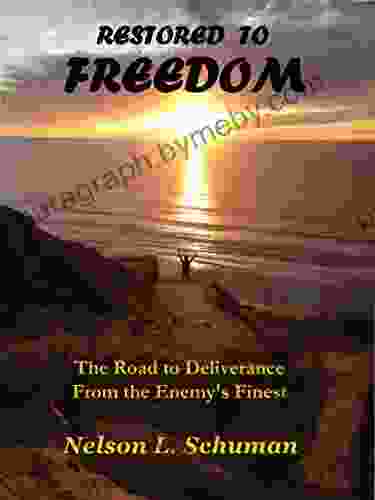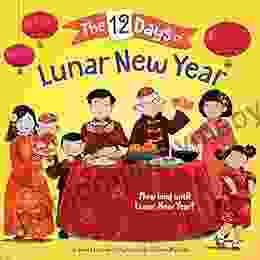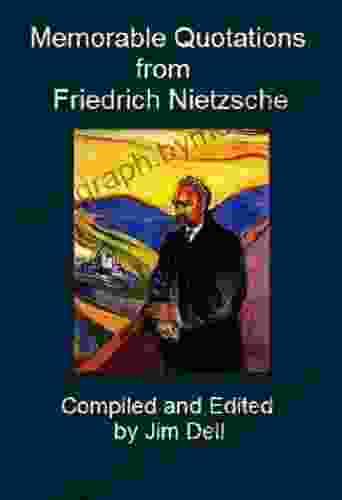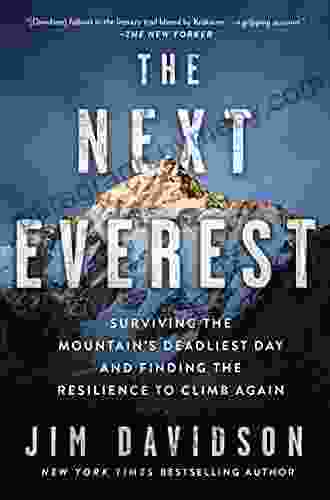A Journey Through Darkness: Exploring the Personal and Cultural History of Blindness

Throughout history, blindness has been shrouded in mystery, fear, and prejudice. Yet, amidst the challenges faced by those who have navigated life without sight, there lies a rich and inspiring tapestry of personal and cultural experiences that have shaped our understanding of this condition.
4.6 out of 5
| Language | : | English |
| File size | : | 2475 KB |
| Text-to-Speech | : | Enabled |
| Screen Reader | : | Supported |
| Enhanced typesetting | : | Enabled |
| X-Ray | : | Enabled |
| Word Wise | : | Enabled |
| Print length | : | 340 pages |
Ancient Perspectives: From Stigma to Reverence
In ancient societies, blindness often carried a negative stigma. In some cultures, it was seen as a punishment from the gods or a sign of evil. However, there were also notable exceptions. In ancient Greece, for example, the blind seer Tiresias was revered for his wisdom and prophecy.
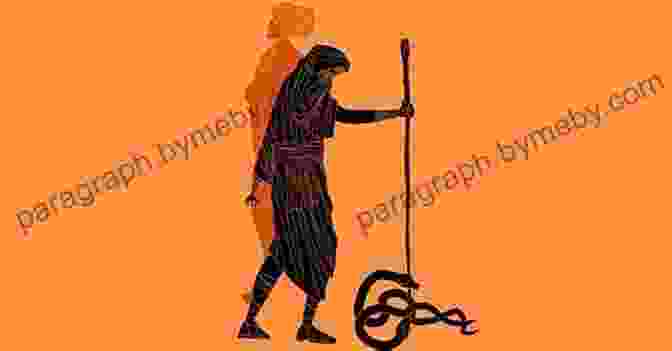
Medieval and Renaissance Era: Isolation and Institutionalization
During the Middle Ages and Renaissance, the social landscape for blind individuals became increasingly isolating. They were often excluded from guilds and other social groups, leading to limited opportunities for work and education.
In the 15th century, the first known institution specifically for the blind was established in Paris. While well-intentioned, such institutions often provided limited support and reinforcement negative perceptions of blindness.
Enlightenment and the Rise of Education
The Enlightenment period brought about a shift in attitudes towards disability. Philosophers and educators began to advocate for the education of blind individuals. In 1784, the first school for the blind was founded in Paris by Valentin Haüy.
Through education, blind individuals gained access to knowledge and skills that empowered them to lead more independent lives. Notable figures such as Louis Braille, who developed the Braille system of reading and writing, showcased the potential and resilience of those with visual impairments.
Modern Era: Inclusion, Advocacy, and Innovation
The 20th and 21st centuries have witnessed significant progress in the social, economic, and educational opportunities for blind individuals. Legislation such as the Americans with Disabilities Act has paved the way for greater inclusion and equality.
Blindness organizations and advocates have played a crucial role in shaping these changes. They have fought for accessible education, employment, and public spaces, empowering blind individuals to live full and meaningful lives.
Technological advancements have also transformed the experiences of blind people. From assistive devices like screen readers to the rise of accessible digital platforms, innovation has facilitated greater independence and connection.
Personal Narratives: Unveiling the Human Experience
Beyond the historical and cultural tapestry, the personal narratives of blind individuals offer invaluable insights into their lived experiences. Autobiographies, memoirs, and other literary works provide a window into the challenges, triumphs, and unique perspectives of those who navigate the world without sight.
From Helen Keller's inspiring journey as a deaf-blind woman to Stevie Wonder's musical genius, these personal accounts illustrate the diversity of human experience and the resilience of the human spirit.
![]()
: Embracing a New Lens
The personal and cultural history of blindness is a testament to the human capacity for adaptation, resilience, and triumph. By shedding light on the diverse experiences of those who navigate the world without sight, we gain a deeper understanding of our own humanity and the myriad possibilities that life holds.
As we continue to break down barriers and embrace inclusivity, the personal and cultural history of blindness serves as a reminder of the importance of empathy, compassion, and the celebration of diversity.
4.6 out of 5
| Language | : | English |
| File size | : | 2475 KB |
| Text-to-Speech | : | Enabled |
| Screen Reader | : | Supported |
| Enhanced typesetting | : | Enabled |
| X-Ray | : | Enabled |
| Word Wise | : | Enabled |
| Print length | : | 340 pages |
Do you want to contribute by writing guest posts on this blog?
Please contact us and send us a resume of previous articles that you have written.
 Book
Book Novel
Novel Page
Page Chapter
Chapter Text
Text Story
Story Genre
Genre Reader
Reader Library
Library Paperback
Paperback E-book
E-book Magazine
Magazine Newspaper
Newspaper Paragraph
Paragraph Sentence
Sentence Bookmark
Bookmark Shelf
Shelf Glossary
Glossary Bibliography
Bibliography Foreword
Foreword Preface
Preface Synopsis
Synopsis Annotation
Annotation Footnote
Footnote Manuscript
Manuscript Scroll
Scroll Codex
Codex Tome
Tome Bestseller
Bestseller Classics
Classics Library card
Library card Narrative
Narrative Biography
Biography Autobiography
Autobiography Memoir
Memoir Reference
Reference Encyclopedia
Encyclopedia Jill Sherman
Jill Sherman Joel Fuhrman
Joel Fuhrman Jenny B Jones
Jenny B Jones Lori Covington
Lori Covington Jen Kerson
Jen Kerson Jeffrey Tayler
Jeffrey Tayler Renae Rae
Renae Rae Jenna Kutcher
Jenna Kutcher Jesse Mccarthy
Jesse Mccarthy Jen Bryant
Jen Bryant John Lee
John Lee Mike X Cohen
Mike X Cohen Patricia Majher
Patricia Majher Jill Croydon
Jill Croydon Seth Casteel
Seth Casteel Jerry R Thomas
Jerry R Thomas Jenna Kernan
Jenna Kernan Jeff Duntemann
Jeff Duntemann Jessie Ash
Jessie Ash Justin Mccurry
Justin Mccurry
Light bulbAdvertise smarter! Our strategic ad space ensures maximum exposure. Reserve your spot today!
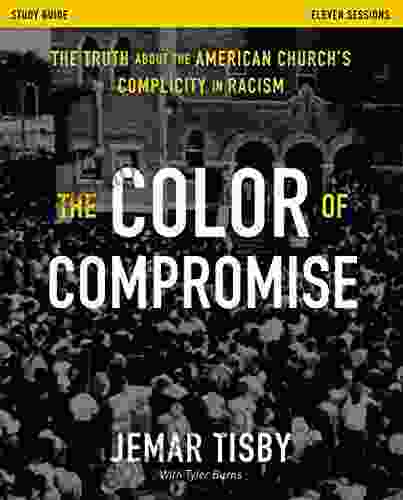
 Virginia WoolfThe Truth About The American Church Complicity In Racism: A Call to Awaken...
Virginia WoolfThe Truth About The American Church Complicity In Racism: A Call to Awaken... Oscar WildeFollow ·9.5k
Oscar WildeFollow ·9.5k David PetersonFollow ·4k
David PetersonFollow ·4k John SteinbeckFollow ·17.2k
John SteinbeckFollow ·17.2k Chinua AchebeFollow ·14k
Chinua AchebeFollow ·14k Walt WhitmanFollow ·18.3k
Walt WhitmanFollow ·18.3k Isaac BellFollow ·8.8k
Isaac BellFollow ·8.8k Thomas PynchonFollow ·5.8k
Thomas PynchonFollow ·5.8k Lawrence BellFollow ·10.5k
Lawrence BellFollow ·10.5k
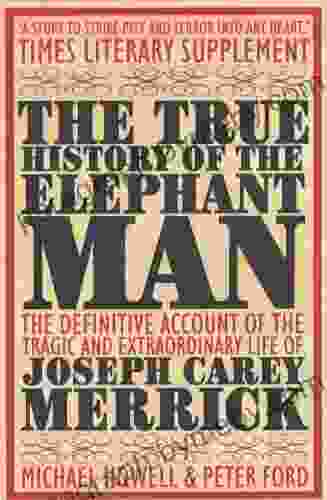
 Jeremy Mitchell
Jeremy MitchellUnveiling the Truth: The Captivating Saga of The Elephant...
Embark on a poignant journey through the...

 Marvin Hayes
Marvin HayesThe Day The World Came To Town: A Heartwarming Tale of a...
In the quaint...

 Hugh Bell
Hugh BellExplore the Avian Treasures of Wisconsin: A Review of...
Unveiling the Secrets of...
4.6 out of 5
| Language | : | English |
| File size | : | 2475 KB |
| Text-to-Speech | : | Enabled |
| Screen Reader | : | Supported |
| Enhanced typesetting | : | Enabled |
| X-Ray | : | Enabled |
| Word Wise | : | Enabled |
| Print length | : | 340 pages |


